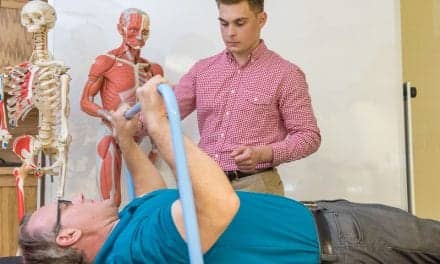
It used to be that at most hospitals, patients admitted with acute COPD exacerbations were treated and sent home with little further advice on what to do if they continued to have problems. But at a symposium at the recent ATS International Conference, I learned of a new trend, one in which RTs could be major players, especially if the Medicare Respiratory Therapy Initiative (HR 941) passes.
This new trend is toward patient self-management of COPD. That is, for clinicians to not just treat the exacerbations and send patients home, but to actually engage the patients in their own care. There are several programs nationwide—some in community settings; some in hospitals or physicians’ offices—but all have one thing in common: They are partnerships between health care professionals and their patients. These partnerships begin with a conversation to establish focus and to develop shared goals—with the health care professional asking questions to be sure the patient understands the goals and coming up with an action plan—including medications, exercise, behavior modification, and perhaps meditation to overcome the depression and/or anxiety that often accompanies COPD. Most of these programs are managed by a case/disease manager; and, at some hospitals, the disease managers are respiratory therapists.
No one has a better understanding of what patients need in the way of COPD interventions than do RTs. Respiratory therapists are uniquely placed to share information such as test results and resources and to provide education so that patients have the skills to manage their disease.
The Accountable Care Act has mandated penalties for hospital readmissions, and patient self-management programs have been shown to reduce rehospitalizations. RTs have an opportunity to help their facilities avoid these penalties by developing programs such as those described at the ATS symposium. If HR 941, which would allow RTs to practice independently rather than under the direct supervision of a physician, passes, the opportunities are even greater. RTs could take the self-management classes out into the community (senior centers, churches, libraries) and educate groups of patients in settings other than hospitals or physicians’ offices, where patients could meet other COPD patients who could provide support and social persuasion to help them modify their behavior, and share techniques to manage exacerbations.
This is a chance for RTs to give back to their hospitals and communities by saving money and lives.
—Marian Benjamin
Resources
Stanford University Chronic Disease Self-Management Program.
patienteducation.stanford.edu/programs/cdsmp.html
National Jewish Medical and Research Center Disease Management Program.
www.nationaljewish.org









